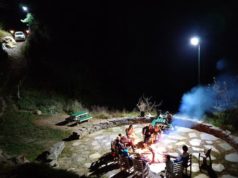Shimla – The Himachal Pradesh government is ready to introduce a series of stringent measures aimed at ensuring compliance within the homestay sector. As part of these new directives, homestays operating on leased premises will face license cancellation, and all unregistered homestays and bed-and-breakfast (B&B) units will be shut down.
This decision follows the revelation that around 60 percent of the 4,146 registered homestays in the state are currently operating on leased terms, which is against the existing Homestay Rule-2008. Under this rule, the person in whose name the license is issued must operate the homestay and live in the same building where the homestay is being run.
The government’s crackdown will also target more than a thousand unregistered homestays and B&Bs, which have been proliferating across the state. These measures will be discussed and potentially ratified in the upcoming meeting of the Cabinet Sub-Committee scheduled for July 23.
In addition to enforcing compliance with the Homestay Rule-2008, the government is amending the Tourism Development and Registration Act 2002. Currently, operators of unregistered units face six months’ imprisonment and a fine of ₹10,000. The amendment proposes to eliminate the imprisonment clause and increase the fine to ₹1 lakh. Furthermore, the registration license period will be reduced from five years to two years, and only residents of Himachal Pradesh will be allowed to operate homestays.
To enhance revenue, the government is considering increasing the registration and renewal fees and imposing a cess on homestays based on their facilities. There is also a proposal to bring B&B units under the regulatory purview of the Tourism Department.
Himachal Pradesh currently has 16,635 rooms in its 4,146 registered homestays, with a bed capacity of 25,511. Kullu district leads with the highest number of registered homestays at 1,015, comprising 12,171 double bedrooms. These new measures are expected to ensure a more regulated and authentic homestay experience for tourists, while safeguarding the interests of local operators.













